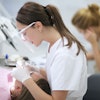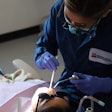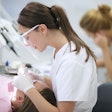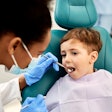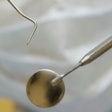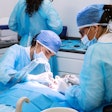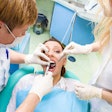As part of Dental Action Day, representatives of the Washington State Dental Association (WSDA) headed to the state capitol today to talk with lawmakers about proposed legislation that would allow dental therapists and dental hygiene practitioners.
The WSDA and WAGD both oppose HB 2226 and SB 6126, which were introduced earlier this month as revised versions of HB 1310 (HB 1310 was automatically reintroduced). According to the WSDA, the following are the main differences between HB 1310 and the new bills:
- The names "dental therapist" and "advanced dental therapist" were changed to "dental practitioner" and "dental hygiene practitioner."
- Dental hygiene practitioners can no longer practice without "offsite supervision."
- "Written collaborative agreement" was changed to "written practice plan contract."
- "Collaborating dentist" was changed to "contracting dentist."
"The Washington State Dental Association is committed to cost-effective, practical solutions to expand access to prevent disease and provide dental care," the WSDA states on its website. "These bills do not meet those basic principles. It doesn't make economic or practical sense and unnecessarily risks patient safety."
According to the WSDA, adoption of these bills would result in the following:
- Inadequate education -- Proposes two-tiers of practitioner: a dental practitioner, who has a high school diploma and unspecified education; a dental hygiene practitioner, who is a dental hygienist and completes an unspecified postbaccalaureate training program.
- Inadequate supervision -- Allows therapists to diagnose and perform surgical procedures outside the dental office with very minimal supervision and inadequate education.
- Major liability issues -- Proposes a collaborative practice agreement between a practitioner and a dentist that is not meaningful and will result in major malpractice and liability conflicts.
- Requires state subsidy -- Is based on dental therapist models in other countries that are funded by government, such as in-school health services or nationalized healthcare systems.
The association has put together a short economic analysis of a proposed dental hygiene practitioner that lays out the revenue and expenses a dental hygiene practitioner would have if he or she treated Medicaid patients in a single-chair clinic.
"WSDA believes that practitioners created in HB 2226 and SB 6126 are not economically viable without extensive government subsidy," the association stated in a recent blog. "This is one of many reasons why we are asking legislators to vote no on HB 2226 and SB 6126."



